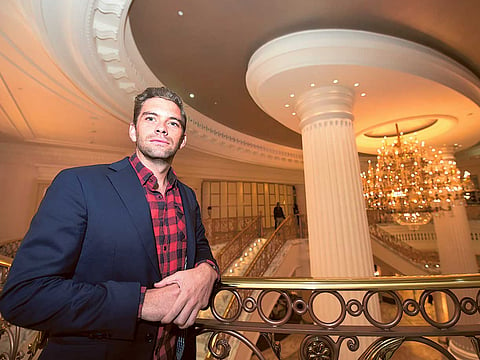Uber says it needs new Dubai growth plan to sidestep saturation
Tech firm says regulations on limousines-for-hire may mean demand outstrips supply

Dubai: Uber is examining ways to expand in Dubai as it predicts demand for its platform will eventually outstrip the supply of limousines.
The issue facing driver-hailing services is largely down to the regulatory environment, updated last month by the Dubai Executive Council.
With strict controls on taxi companies in the UAE, the referral tech firms are limited to working with established limousine companies, themselves subject to strict regulations, In Dubai, the Road Transport Authority (RTA) confirmed those include a Dh5 million bank guarantee, feasibility study and a minimum fleet size of 20 vehicles from an approved list.
“All limousine service providers have to regulate their activities including pricing according to RTA’s rules and regulations prescribed by the recent resolution,” said Adel Shakri, Director of Transportation Systems Department, RTA. “Accordingly, the rates for limousine services have always been 30 per cent higher compared to the normal taxi services provided by the RTA and the limousine service providers have to follow the same.”
Those regulations limit the number of vehicles available to hailing apps such as Uber and Careem.
“There are roughly 5,000 registered limousines in Dubai, and we have a good proportion of those,” Chris Free, Uber’s general manager for the UAE and Qatar, said in a telephone interview on Thursday. “If we keep growing at the rate we have been growing, we are going to have a situation where we have unmet demand.”
Uber, which launched in the UAE in September 2013, is in the early stages of developing its expansion strategy. “I think there are a number of different options that will present themselves in the next 12 months or so,” Free said. “This is the research phase.”
Globally, Uber has thrived on rapid geographic expansion. It launched in San Francisco in 2009, expanded to New York and then Paris in 2012, and added India, South Africa and the UAE, among others, in 2013.
It presently operates in 402 cities worldwide, according to its website, including 11 in the Middle East.
Rival Careem, founded in 2012, operates in 17 cities in the Middle East and North Africa, and last year expanded its Saudi Arabian service from limousines to include what it calls “everyday licensed taxis”. The firm did not respond to emailed requests for their views on expansion in Dubai.
Free did not rule out the possibility of Uber starting its own limousine fleet, which would be a major change for the company, which regards itself as a tech firm, not a transport company. However, he said, “This would not be our preferred option.”
Another possibility is to convince the RTA to allow a middle tier of hired transport, positioned between taxis and limousines and operating in a manner similar to London’s private hire vehicles.
Free stressed this was merely an idea. “In terms of solutions, we don’t have one yet,” he said.
By land, air and sea
Uber will launch a limited water service, UberYACHT, in Dubai near the end of April, the company’s UAE and Qatar general manager, Chis Free, said on Thursday. Unlike its car app, the yacht service isn’t aimed at routine travel, but at the urban partygoer. Run in partnership with theNikki Beach Club at the Pearl Jumeirah, Dubai, the on-demand service will collect diners from their homes in a limousine, take them to the yacht location for a waterborne party, and drop them home afterwards.
The firm entered the leisure travel market last year with UberCHOPPER, initially launched to deliver people to the Abu Dhabi Grand Prix by helicopter, but expanded last December to offer an on-demand aerial tour of Dubai.


